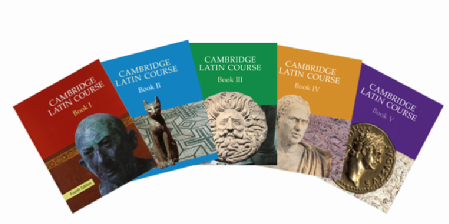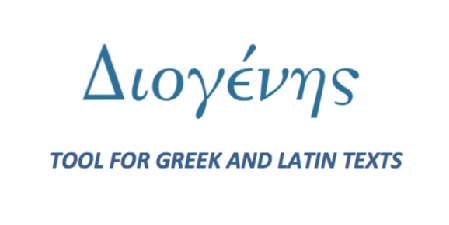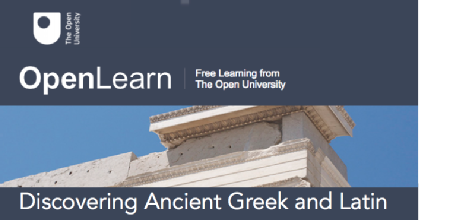Resources for Latin
 The following sites and resources are recommended by Classics for All. You will find links to resources which will help you introduce Classics and Ancient History as well as Latin and Ancient Greek. For more advice and to find out about how WCN and Classics for All can help your school, please use the website feedback form or contact Dr Paul Grigsby at Paul.Grigsby@Warwick.ac.uk.
The following sites and resources are recommended by Classics for All. You will find links to resources which will help you introduce Classics and Ancient History as well as Latin and Ancient Greek. For more advice and to find out about how WCN and Classics for All can help your school, please use the website feedback form or contact Dr Paul Grigsby at Paul.Grigsby@Warwick.ac.uk.
 Welcome to the Cambridge Latin Course!
Welcome to the Cambridge Latin Course!
With a 50 year history of development and revision, the Cambridge Latin Course (CLC) has established itself as the leading beginner's course for Latin.
Aims of the CLC: to teach comprehension of the Latin language for reading purposes; to develop an understanding of the history and culture of Roman civilisation; to encourage a wide range of approaches to language learning through the use of high quality audio-visual resources.
Visit the website for more informational and additional resources. FREE eBooks of all 5 CLC books are currently available plus all the usual online support activities
 A companion to Bloomsbury's popular two-volume Greek to GCSE, Henry Cullen and John Taylor's Latin to GCSE is the first course for Latin students that directly reflects the curriculum in a clear, concise and accessible way.
A companion to Bloomsbury's popular two-volume Greek to GCSE, Henry Cullen and John Taylor's Latin to GCSE is the first course for Latin students that directly reflects the curriculum in a clear, concise and accessible way.
Enhanced by colour artwork and text features, the books support the new OCR specification for Latin (first teaching 2016) as well as meeting the needs of later students, both at university and beyond.

 FREE access to the Open University's Discovering Ancient Greek and Latin course is now available through its Open Access site. Discovering Ancient Greek and Latin gives a taste of what it is like to learn two ancient languages. It is for those who have encountered the classical world through translations of Greek and Latin texts and wish to know more about the languages in which these works were composed.
FREE access to the Open University's Discovering Ancient Greek and Latin course is now available through its Open Access site. Discovering Ancient Greek and Latin gives a taste of what it is like to learn two ancient languages. It is for those who have encountered the classical world through translations of Greek and Latin texts and wish to know more about the languages in which these works were composed.
Content includes: Beginning Latin; Latin noun endings; Latin verb endings; Simple sentences and Reading Latin
Ashmolean Latin Inscriptions Project - Resources for Latin Teachers

The Ashmolean Latin Inscriptions project has produced a range of free education resources and activities. These can be used for teaching both Latin language and Roman Life topics to a range of age groups.
Click on the above image to access guides to teaching Latin with inscriptions; Object Research Fact sheets; a series of lessons to learn the Latin imperative, using real examples from inscribed sling bullets; and teaching the using real Roman tomb stones.
Other Online Resources
Latin Resources for Schools (University of Nottingham)
Free downloads of extracts covering the selections from Cicero’s speech ‘Pro Milone’ on the OCR AS and A-Level Latin syllabus, with each sentence showing grammatical structure, analysis of number and type of clauses, and description in terms of its contribution to the ongoing argument.
Latin Set Texts Commentaries (University of Cambridge)
Links to free online commentaries on Cicero, Tacitus and Virgil, useful for Latin students in Years 12 and 13.
Teaching Classical Languages
Links to resources for teachers of Latin and Greek, including the Audio-Visual Classics Database and ‘Ariadne: Resources for Athenaze’.
TES Connect
Teaching resources to order on Ancient History, Greek and Latin for use in early years, primary and secondary classrooms, including wall cards, storyboards, games, handouts and worksheets.
The Latin Library
Extensive collection of Latin texts submitted by contributors from around the world (no translations).
The Latin Qvarter
A Guide to Latin Pronunciation, an Introduction to Latin Verse, recordings of passages read in Latin and links to short films in Latin.
The Perseus Project
Tufts University’s digital library project of humanities resources, including primary and secondary resources for the study of Ancient Greece and Rome, and catalogue of art and archaeology artefacts.
